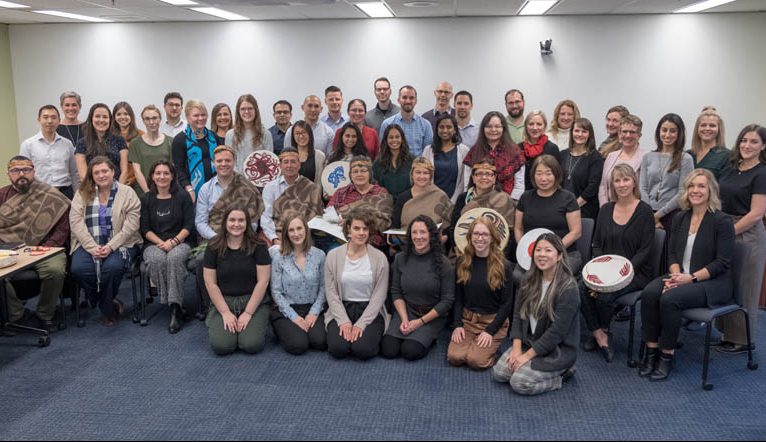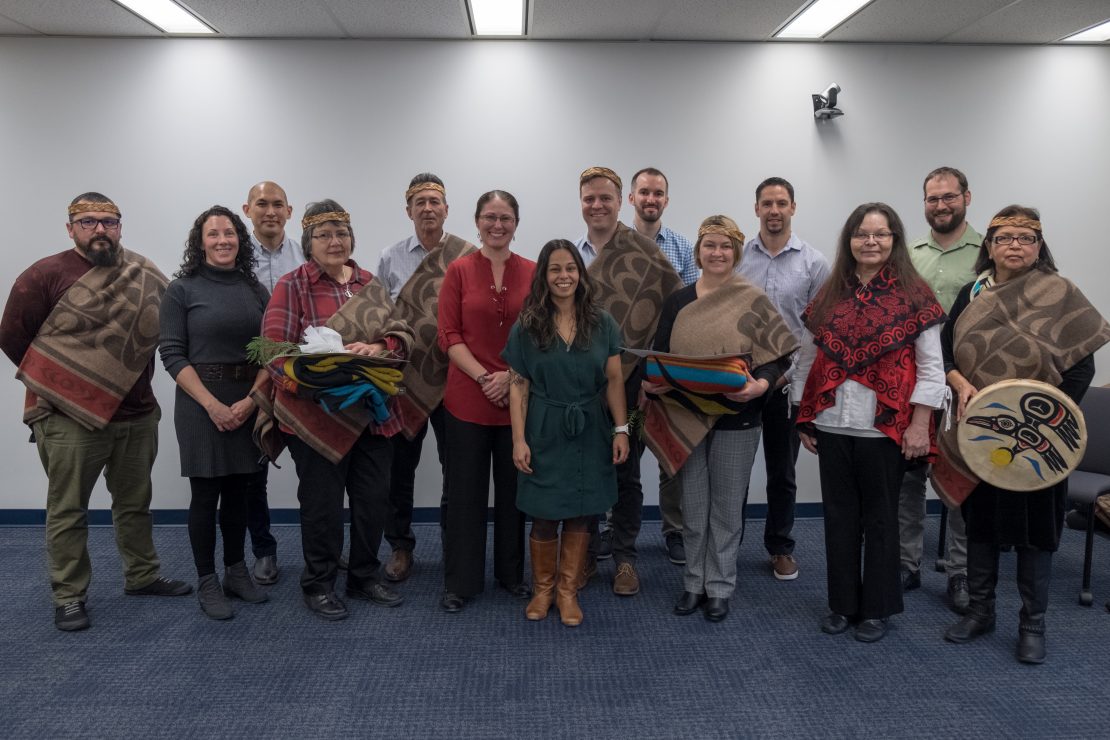We want to ensure the best possible care for every person in British Columbia. As we strive towards this goal, it’s important that we recognize and address the barriers and power imbalances that are inherent within our health care system. Since the establishment of the Council, we have committed to promoting, learning about and educating others about cultural safety and humility to drive change in BC. Given that we’ve recently formalized our continuing commitment towards safe and respectful care for all by signing a Declaration of Commitment to Cultural Safety and Humility for First Nations People in BC with the First Nations Health Authority, we wanted to share our experiences, as well as our hopes for the future.

Cultural humility starts with acknowledging the personal and systemic biases inherent in our system and working towards positive change. We were proud to provide advisory and design support for the #ItStartsWithMe campaign, created by the First Nations Health Authority to encourage individuals to pledge their commitment to cultural safety and share their vision for a safer health care system. In addition to helping develop the campaign, our staff have written their own pledges, detailing how they plan to personally contribute to a more safe and equitable health care system. In November 2019, our staff created new pledges, which are posted in our lobby to offer reminders and inspiration.
As dedicated learners and participants in the movement for cultural safety, almost all of our staff have completed San’yas Indigenous Cultural Safety Training, delivered by the Provincial Health Services Authority. This training is designed to educate participants on the history of systemic racism, encourage self-reflection and build skills for those who will be working directly or indirectly with Indigenous people. Because cultural safety and humility are part of a lifelong journey of learning, we regularly dedicate portions of our bi-annual team meetings to further training, which has included examining our personal backgrounds, evaluating our biases, learning about the history of the Coast Salish territories and drum-making led by Indigenous elders. These drums are used during the singing of the Coast Salish Anthem (Chief Dan George Prayer Song) during our annual Quality Forum, and during other ceremonial events.
Four years ago, Leonard George joined us at the Quality Forum and shared the vision for the Coast Salish Anthem: that all people (both settlers and Indigenous) on Coast Salish land would come together to sing this song in solidarity. As part of the First Nation Health Authority’s adoption into the Tsleil-Waututh First Nation’s Wolf Clan, staff sing the Coast Salish Anthem together during their weekly morning prayer. In a moving gesture, the First Nations Health Authority invited us to sing this song as part of their family. When we sing the Coast Salish Anthem, it serves as a symbol of our commitment to cultural safety and humility, our role as allies in this work and a testament to our partnership with the First Nations Health Authority.
While we have undertaken the personal and organizational journey of cultural safety and humility, we are equally committed to educating others on the importance of a health care system that is free of racism and discrimination. We continue to weave Indigenous health and wellness into all our learning events. Additionally, we are honoured to have worked with the First Nations Health Authority to create a webinar action series to encourage reflection, learning and positive change among BC’s health care providers. These webinars support the development of tools and skills for being an effective ally and for health care professionals to integrate this work into their practice or interaction with Indigenous clients. We also offer cultural safety and humility education through Quality Café, the Quality Forum and other learning resources.
We encourage our health care partners to work with Indigenous patient partners to ensure multicultural perspectives are taken into account when it comes to patient engagement and improving our health care system. With this in mind, we have also sought to diversify the Patient Voices Network. In 2019 14% of our new patient partners identified as Indigenous, 12% as a member of a visible minority and 2% as recent immigrants to Canada. Next steps for the future include solidifying a collaboration agreement between the First Nations Health Authority and the Patient Voices Network to identify opportunities to advance the Indigenous patient voice within the Network and beyond.
At the systems level, in partnership with the First Nations Health Authority, we are working to raise the standards of quality care in BC by hardwiring cultural safety and humility into the provincial definition of quality through our evolved BC Health Quality Matrix. The new Matrix will include Indigenous perspectives on health and wellness and illustrate the importance of incorporating Indigenous and non-Indigenous worldviews when considering quality and what that quality means to the population of BC. Keep an eye out for the Matrix, which will be released in February 2020.
We are proud of the steps we have taken on our ongoing cultural safety and humility journey – but we know there is still considerable work to be done in order to build a health care system free of discrimination, with relationships based on mutual respect and trust.
By signing the Declaration of Commitment to Cultural Safety and Humility, we are formalizing our intentions and recommitting ourselves to this important work. We have committed to championing cultural safety and humility in BC, supporting partnerships and pathways to greater engagement of Indigenous patient voices in BC’s evolving health care system, and leveraging our provincial mandate to advance cultural safety and humility with our partners.
We will continue embedding cultural safety and humility into our policies, practices and actions each and every day to create an environment where people of all ages, genders and races feel safe receiving health care, and we encourage other health care organizations to do the same. By committing to cultural safety and humility, you have the opportunity to honour the Indigenous history of our province while helping to create a better tomorrow.
How Can You Get Involved?
- Make an #ItStartsWithMe pledge
- Watch the Cultural Safety & Humility Action Series
- View our Quality Café on applying cultural safety and humility in patient engagement
- View our Quality Café on Indigenous cultural safety and humility in quality improvement
- Learn about cultural safety and cultural humility
- Complete San’yas Indigenous Cultural Safety Training


